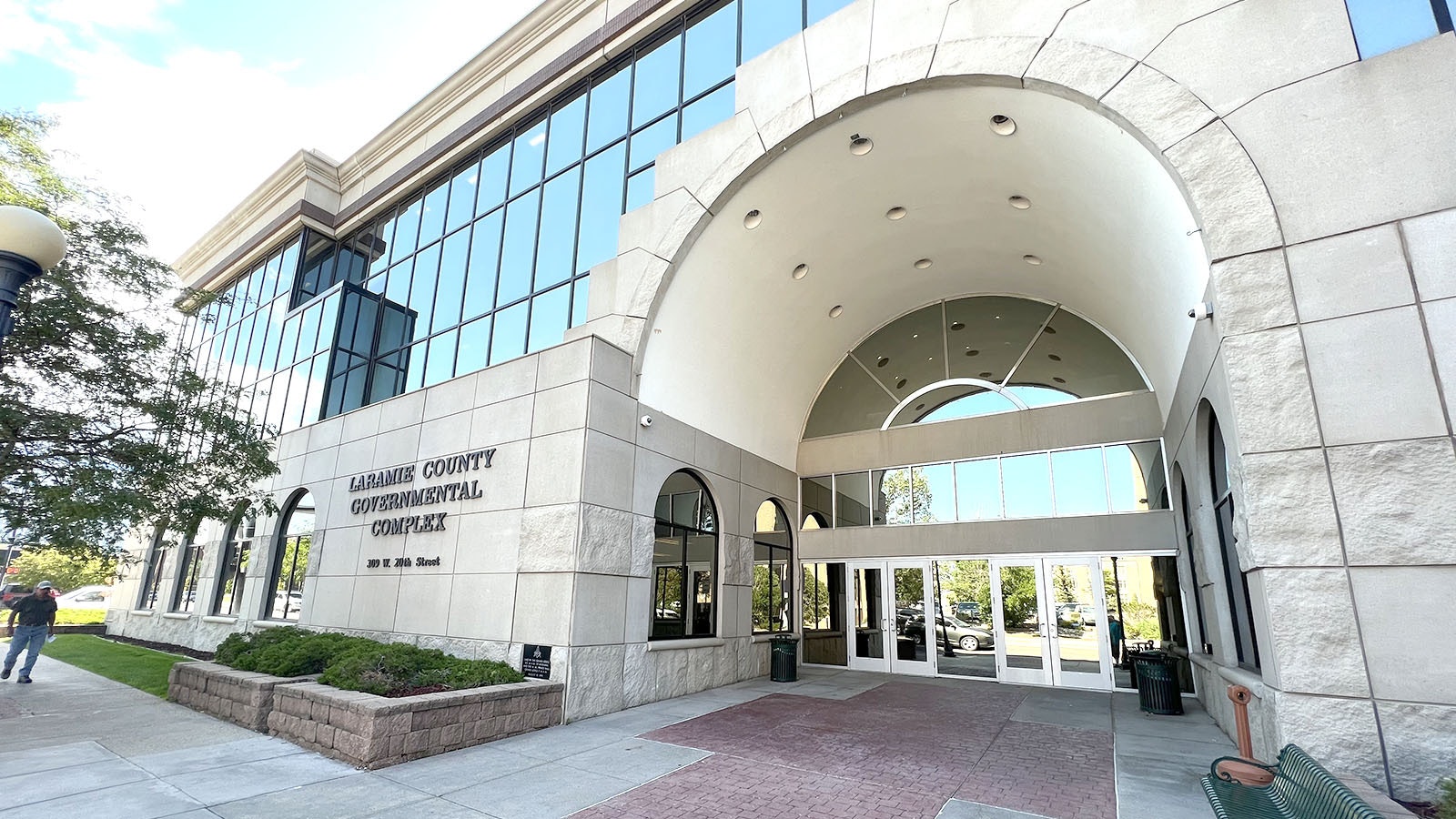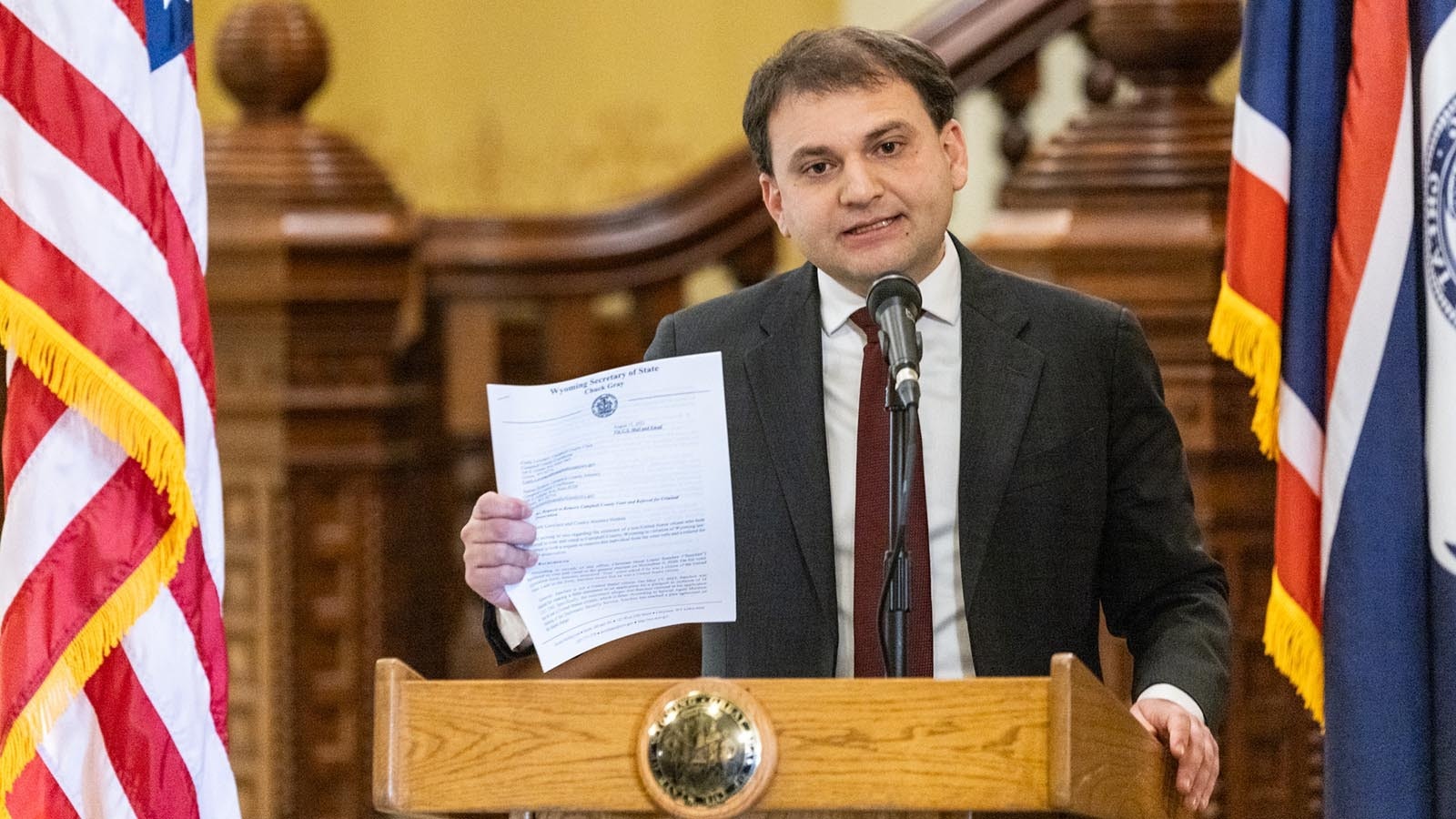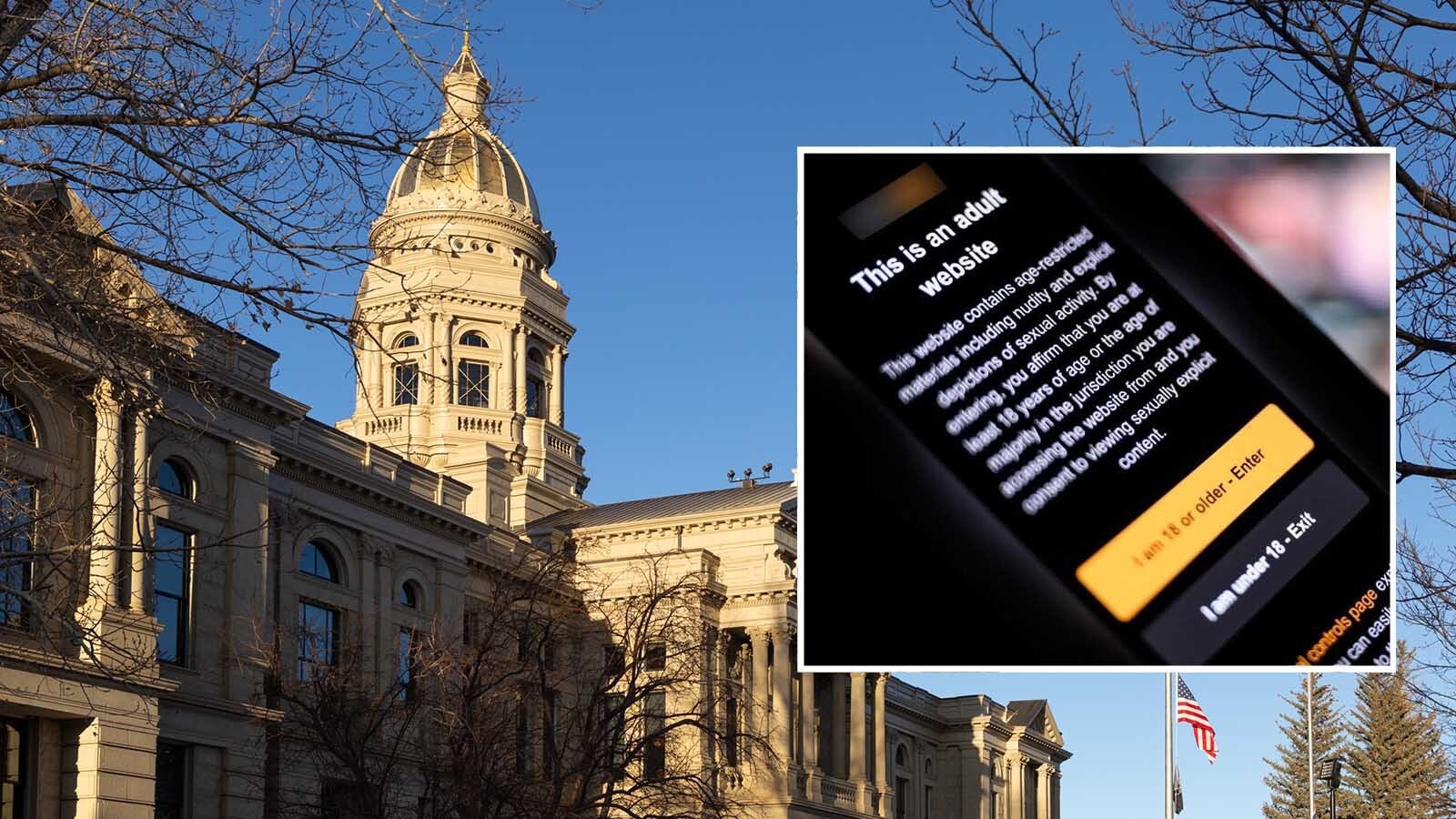A Wyoming judge is considering whether the state Legislature underfunded its public schools in recent years, or if the schools are trying to use constitutional education requirements to strong-arm taxpayers into funding social programs.
Laramie County District Court Judge Peter Froelicher said Monday he’s taking the issues under advisement after the state of Wyoming asked for summary judgement in the state’s favor on several issues in the education-funding lawsuit.
But most of these issues look like they should go to trial instead, he said.
“My gut reaction at this point is, I’d prepare like we’re going to have a trial on most all of the issues before the court at this time,” said Froelicher. “There’s going to be a lot of presentation of evidence, but I really think that there’s a lot still in dispute.”
Eight school districts suing the state alongside the Wyoming Education Association (a teacher advocacy group that does not consider itself a union) also asked Froelicher to judge the case early in their favor, by declaring that the Legislature doesn’t keep up with inflation as it budgets for its kindergarten-12th grade schools.
Froelicher heard arguments from both sides, plus WEA’s rebuttal against the state, in a Monday hearing in Cheyenne.
Actually, We Overpaid, Says State
Wyoming didn’t need to adjust school funding for inflation every year from about 2005-2020, because the state was already over-funding education in those years, Attorney General deputy Mark Klaassen argued on behalf of Wyoming.
In a separate Feb. 16 brief, Klaassen disputed plaintiffs’ request for “retroactive” damages to compensate for years of alleged underfunding.
“School districts cannot go back in time and spend money,” he wrote.
But Wyoming is now funding schools under what its consultants have recommended, argued the school districts’ attorney Richard Bush of Coal Creek Law in Cheyenne.
He also argued that because Wyoming is not as competitive in teacher wages as it was in years past, children are suffering.
“They’re putting teachers in a classroom they wouldn’t have even interviewed a few years ago,” said Bush. “Obviously there’s a problem.”
Tax-Funded Counseling
Klaassen and the school districts also butted heads over how broad the Wyoming Constitution’s promise of an education is.
The schools say the state is obligated to provided funding for things like elementary school counselors, mental health services, school resource officers and subsidies for school lunches.
Wyoming is asking Froelicher to deny those claims as extras, not part of the fundamental right to receive an education. He said the schools are trying to use the state Constitution to strong-arm from the Legislature social programs that the Legislature would never pass on its own.
“They don’t get to dictate to the legislative body what additional things the Legislature must provide,” Klaassen said Monday.
Cheyenne attorney Pat Hacker, whose emphatic voice prompted a mild joke from Froelicher, boomed his disagreement on behalf of WEA.
“What they call social welfare programs … we believe these are integral and necessary parts of an education,” Hacker said. The state “suggest in their brief if students have mental health problems and it affects their learning, that’s just a social problem.”
Students’ declining mental health is a problem in the nation and “needs to be added” to the provisions recognized under Wyoming’s educational right, Hacker argued.

Sewage And Suitability
Wyoming is monitoring whether school buildings are suitable and allows districts to raise building concerns to an administrative commission, Klaassen argued, calling this an efficient way to deal with construction issues on a school-by-school basis.
He asked Froelicher to deem this system constitutionally sufficient, and to keep that issue from going to trial.
That system is not enough and allows several schools to slip through the cracks, Hacker countered.
The school districts’ own Feb. 16 brief echoes this, pointing to school buildings that are allegedly in bad shape.
The brief says the traffic congestion around Rock Springs High School, built in the 1970s in a residential neighborhood, contributed to a student fatality one block from campus this year. The building has glycol leaks, raw sewage leaking into its showers, and teachers are hosting class in custodial classrooms, the districts’ brief alleges.
The Chad Bourgeois, Campbell County High School principal, testified at his deposition that the school’s roof has leaked on kids taking tests and a “relentless” sewer odor permeates the building, prompting partial closures.
Even if a school is in “perfect condition” and structurally sound, it still may not be suitable by today’s technology and education standards, Bush argued Monday.
Klaassen countered, saying the plaintiffs pointing out isolated incidents doesn’t mean the state’s system is unconstitutional.
These Eight Districts
WEA first sued the state in August 2022. Eight school districts later joined the WEA as intervening plaintiffs.
The Legislature during its 2023 session passed a budget bill adjusting the K-12 budget by $70 million for the 2023-24 school year. The increase puts the state within 1.9% of its consultants’ recommended funding amount for schools, court documents say. It also represents significant jumps in several categories. These are:
- A 4.3% increase for professional workers.
- A 5.4% increase for non-professional labor.
- A 19.5% increase for materials.
- A 39% increase for energy costs.
The schools’ advocates implied Monday that the large funding hike, given after WEA filed suit, shows that Wyoming was underfunding schools in recent years.
Klaassen countered, saying the state is catching up with a COVID-induced calamity.
“We are in a post-pandemic labor market disrupted environment,” said Klaassen. “The state is not denying there are inflationary pressures (and) in fact, the state has responded with not one but two (inflationary stipends).”
Fresh Issues, Says Judge
In 2005, the Wyoming Legislature switched from using a court-approved cost-based funding analysis for schools to using a more generous, evidence-based model, court documents say.
Not only that, but the Legislature funded schools above its evidence-based model for about 15 years after that, Klaassen’s brief says.
He argued Monday that the court doesn’t need to “re-litigate” the last 15 years by evaluating whether the evidence-based model is constitutional, since it has yielded such generous budgeting.
But Froelicher saw it differently, saying if the state is going to adopt a new funding mechanism that hasn’t been tested in court, then it may have to defend that system in a trial after all.
The Wyoming Supreme Court’s holding that the state’s earlier funding mechanism was constitutional may now be “irrelevant,” the judge added.
The trial is set for June.
Clair McFarland can be reached at clair@cowboystatedaily.com.





